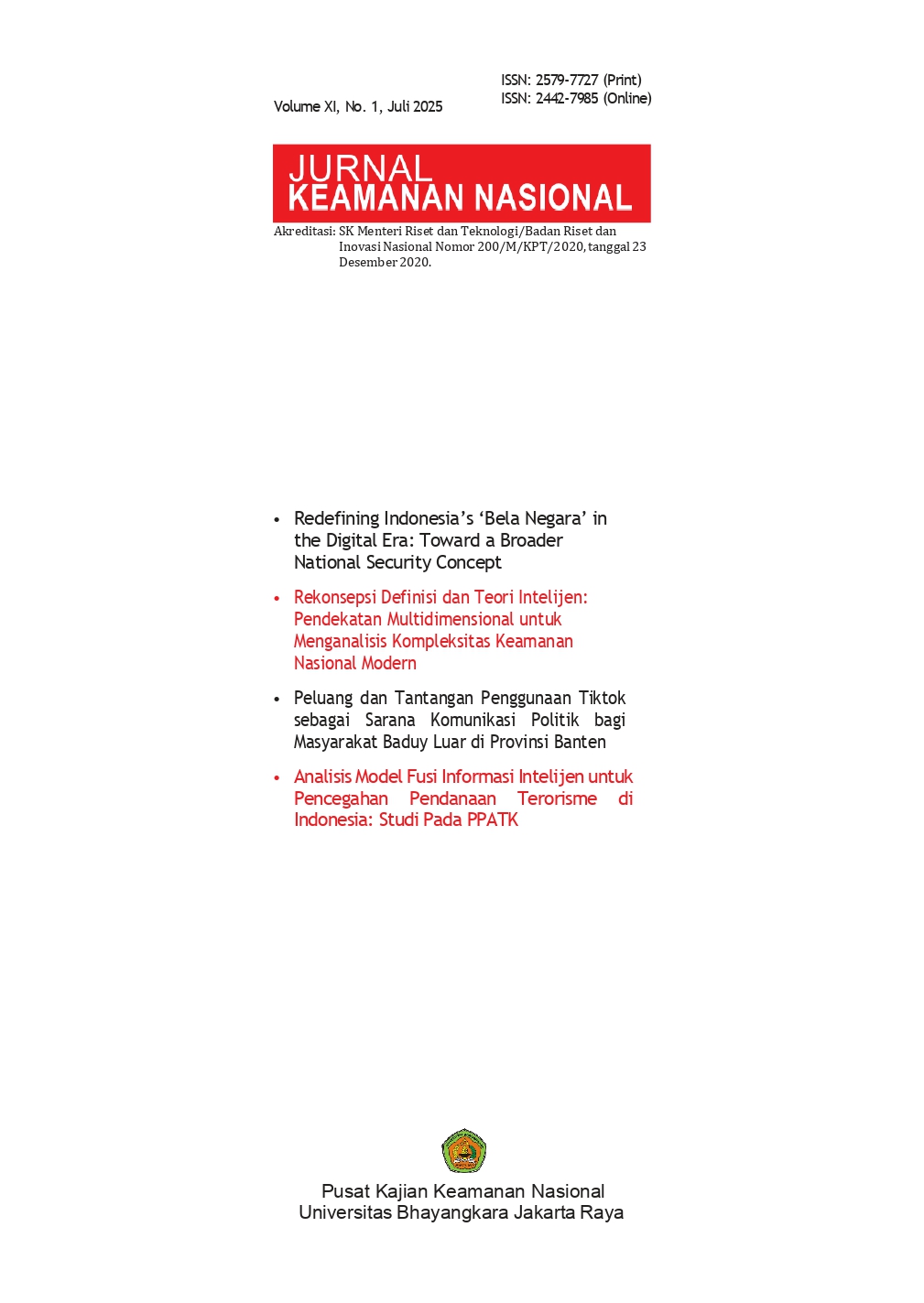Redefining Indonesia “Bela Negara” in the Context of Digital Era: Deeper Meaning on National Security Concept
DOI:
https://doi.org/10.31599/cwwc8891Keywords:
Bela Negara, hybrid threats, digital security, national resilience, total defense, post-truth, legal frameworkAbstract
This paper explores how the concept of Bela Negara (state defense) in Indonesia must be redefined in light of evolving global security dynamics, especially amid digital transformation and the rise of hybrid threats (HT) and hybrid warfare (HW). Through a normative juridical and comparative approach, the study examines legal frameworks in Indonesia and other countries such as Singapore, Sweden, and the United States, highlighting differences in how citizen participation, resilience, and national security are framed. It argues that Bela Negara in Indonesia remains heavily tied to a traditional, militaristic understanding of security and must shift toward a more holistic model rooted in national resilience. Such a model includes individual, community, and institutional capacities to resist digital disinformation, violent extremism, and hybrid campaigns. Drawing lessons from total defense models and international frameworks on human rights and security, the article suggests aligning Bela Negara with democratic values, critical digital literacy, and a whole-of-society approach. This reconceptualization is necessary to ensure that Indonesian national security frameworks remain adaptive and inclusive in facing both conventional and emerging threats.
Downloads

Downloads
Published
Issue
Section
License
Copyright (c) 2025 Indah Pengastu Amaritasari (Author)

This work is licensed under a Creative Commons Attribution 4.0 International License.
Please read and understand the copyright terms for submissions to this journal.
Copyright Notice
The Jurnal Keamanan Nasional is under the Creative Commons Attribution 4.0 International (CC-BY 4.0) License, according to which:
1) Authors retain copyright and grant the journal the right to first publication, with the work simultaneously licensed under the Creative Commons Attribution (CC-BY 4.0) that allows the sharing of articles published with the acknowledgement of authorship and the initial publication in this journal.
2) The authors are authorized to make additional contracts separately for distribution of the version of the work published in this journal (for example, publication in an institutional repository or as a chapter of the book), as long as there is recognition of authorship and initial publication in this journal.
3) Authors are authorized and encouraged to publish and distribute their work online (for example, in institutional repositories or on their personal pages) at any time before or during the editorial process, as it increases the impact and reference of the published work.












